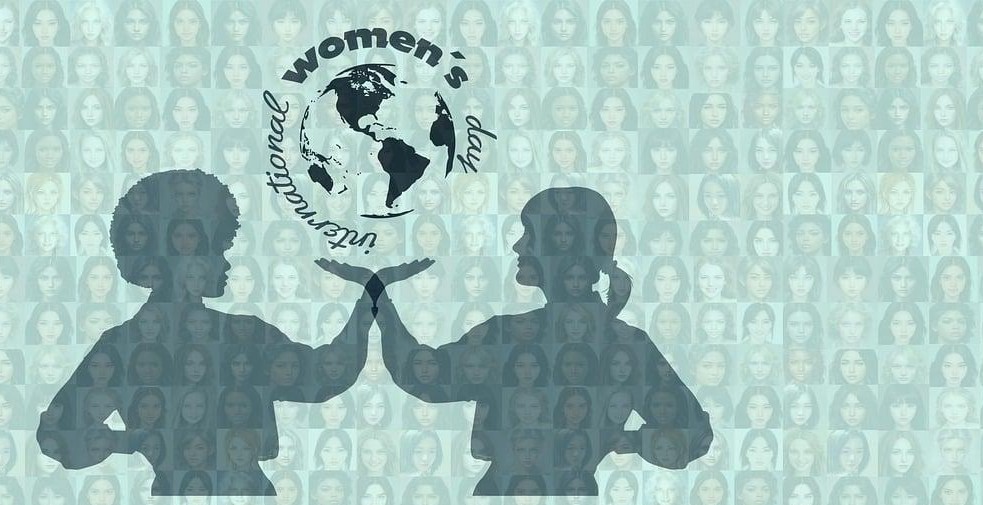The Intersection of AI and Human Rights: Protecting Individual Freedoms
Artificial Intelligence (AI) has become an integral part of our modern society, transforming numerous aspects of our daily lives. From voice assistants and recommendation algorithms to autonomous vehicles and facial recognition systems, AI technologies are revolutionizing the way we live, work, and interact.
As AI continues to advance and permeate various industries, it raises important ethical and legal questions. One of the key concerns is the potential impact of AI on human rights and individual freedoms. While AI has the potential to enhance our lives in numerous ways, it also poses significant risks, such as privacy invasion, biased decision-making, and exacerbation of social inequalities.
The Need for AI Ethics and Human Rights Frameworks
In order to protect individual freedoms and ensure that AI technologies are used responsibly, there is a growing need for comprehensive AI ethics and human rights frameworks. These frameworks should establish guidelines and principles for the development, deployment, and use of AI systems, taking into account the potential risks and impacts on human rights.
AI systems should respect fundamental human rights, including the right to privacy, freedom of expression, non-discrimination, and due process. They should be transparent, explainable, and accountable, enabling individuals to understand how decisions are made and providing mechanisms for redress in case of harm or injustice.
The Role of Stakeholders
Addressing the intersection of AI and human rights requires collaboration among various stakeholders, including governments, technology companies, civil society organizations, and academia. It is crucial to establish a multi-disciplinary approach that brings together experts from different fields to develop and implement effective policies and regulations.
This article explores the challenges and opportunities presented by the intersection of AI and human rights, highlighting the importance of an ethical and human rights-based approach to AI development and deployment. It examines the potential risks, the need for robust frameworks, and the role of stakeholders in protecting individual freedoms in the era of AI.
Understanding AI
Artificial Intelligence (AI) refers to the simulation of human intelligence in machines that are programmed to think and learn like humans. It encompasses a wide range of technologies and techniques that enable computers to perform tasks that typically require human intelligence, such as problem-solving, decision-making, speech recognition, and language translation.
Types of AI
There are various types of AI, each with its own level of complexity and capabilities:
- Narrow AI: Also known as weak AI, narrow AI is designed to perform a specific task or set of tasks. It operates within a limited scope and does not possess general intelligence. Examples include virtual personal assistants like Siri and Alexa, as well as recommendation algorithms used by online platforms.
- General AI: General AI, also referred to as strong AI or human-level AI, possesses the ability to understand, learn, and apply knowledge across a wide range of tasks. This type of AI is hypothetical and does not yet exist.
- Superintelligent AI: Superintelligent AI surpasses human intelligence and has the potential to outperform humans in virtually every cognitive task. This level of AI remains speculative and raises significant ethical concerns.
Applications of AI
AI finds applications in various industries and domains, revolutionizing the way we live and work. Some notable applications of AI include:
- Healthcare: AI algorithms can analyze medical data to assist in diagnosing diseases, identifying patterns, and recommending treatment plans. They can also help in drug discovery and personalized medicine.
- Finance: AI-powered systems can analyze vast amounts of financial data to detect fraudulent activities, predict market trends, and automate trading processes.
- Transportation: AI is integral to the development of self-driving cars, optimizing traffic management systems, and enhancing navigation and route planning.
- Customer Service: AI chatbots and virtual assistants are increasingly used to provide personalized customer support, answer queries, and streamline customer interactions.
- Education: AI can facilitate personalized learning experiences, adaptive tutoring, and intelligent content recommendation systems.
These are just a few examples of how AI is being utilized across industries. As AI continues to advance, its potential applications are expanding, offering both opportunities and challenges in various aspects of our lives.

The Importance of Human Rights
Human rights are fundamental rights and freedoms that every individual is entitled to, regardless of their race, gender, nationality, religion, or any other status. These rights are inherent to all human beings and are essential for their dignity, equality, and well-being.
Defining Human Rights
Human rights encompass a wide range of principles and values that protect individuals from discrimination, oppression, and abuse. They include civil, political, social, economic, and cultural rights, which are recognized internationally and upheld by governments and societies.
These rights are based on the principles of universality, indivisibility, and interdependence. Universality means that human rights apply to every person, regardless of their background or location. Indivisibility implies that all rights are equally important and interconnected, and the violation of one right can jeopardize the enjoyment of others. Interdependence emphasizes the need for a comprehensive approach to human rights, recognizing that political and civil rights are closely linked to social, economic, and cultural rights.
The Universal Declaration of Human Rights
The Universal Declaration of Human Rights (UDHR) is a milestone document in the history of human rights. Adopted by the United Nations General Assembly in 1948, it sets out the fundamental freedoms and rights to which all individuals are entitled.
The UDHR consists of 30 articles that encompass a wide range of rights, including the right to life, liberty, and security of person; freedom of thought, conscience, and religion; right to education; right to work and fair wages; and right to participate in cultural life, among others. It serves as a foundation for international human rights law and has been translated into over 500 languages.
Significance of Human Rights
Human rights play a crucial role in promoting peace, justice, and equality in societies. They serve as a check on the power of governments and institutions, ensuring that individuals are protected from arbitrary actions and abuses of authority.
Respecting and upholding human rights is essential for the well-being and development of individuals and communities. It fosters social cohesion, inclusivity, and diversity, allowing everyone to live with dignity and without fear of discrimination or persecution.
Moreover, human rights are not only applicable to individuals but also have a collective dimension. They empower communities and enable them to participate in decision-making processes, advocate for their rights, and hold governments accountable for their actions.
In the context of the intersection of AI and human rights, it is crucial to ensure that the development and deployment of AI technologies respect and protect human rights. This includes addressing issues such as privacy, bias, discrimination, and transparency to prevent any adverse impacts on individuals and their fundamental rights.
By upholding human rights, societies can harness the potential of AI while safeguarding individual freedoms, fostering trust, and ensuring a fair and equitable future for all.

AI and Human Rights: The Challenges
As artificial intelligence (AI) continues to advance, it presents both opportunities and challenges in the realm of human rights. While AI has the potential to enhance various aspects of our lives, it also raises concerns about bias and discrimination, privacy and surveillance, as well as transparency and accountability.
Bias and Discrimination
One of the major challenges associated with AI is the potential for bias and discrimination. AI systems are trained on vast amounts of data, and if that data is biased, the AI algorithms may inadvertently perpetuate and amplify existing societal biases. This can lead to discriminatory outcomes in areas such as hiring, lending, and criminal justice.
To address this challenge, it is crucial to ensure that AI systems are trained on diverse and representative datasets. Additionally, regular audits and evaluations should be conducted to identify and mitigate any biases that may arise in AI algorithms. Ethical guidelines and regulations should also be established to hold AI developers accountable for any discriminatory practices.
Privacy and Surveillance
AI technologies often rely on the collection and analysis of vast amounts of personal data. This raises concerns about privacy and surveillance. As AI becomes more pervasive in our daily lives, there is a risk of constant monitoring and the potential for misuse of personal information.
Strong data protection regulations and privacy laws are essential to safeguard individuals’ rights in the age of AI. Transparency regarding data collection practices and the purpose of AI systems should be prioritized. Individuals should have control over their personal data and the ability to opt-out of data collection when desired. Striking a balance between the benefits of AI and the protection of privacy rights is crucial.
Transparency and Accountability
AI systems often operate as black boxes, making it difficult to understand how decisions are reached. This lack of transparency raises concerns about accountability. When AI is used in critical areas such as healthcare, criminal justice, or finance, it is essential to ensure that the decision-making process is transparent and explainable.
Regulations and standards should be established to require AI developers to provide explanations for the decisions made by their systems. Auditing and certification processes can help ensure that AI systems are transparent, accountable, and adhere to ethical guidelines. Collaboration between AI developers, policymakers, and human rights organizations is crucial to strike the right balance between innovation and accountability.
Conclusion
The intersection of AI and human rights presents complex challenges that require careful consideration. Addressing issues of bias and discrimination, privacy and surveillance, as well as transparency and accountability is essential to protect individual freedoms in the age of AI. By implementing robust regulations, promoting transparency, and fostering collaboration, we can harness the potential of AI while ensuring the preservation of human rights.

Protecting Individual Freedoms
Ensuring the protection of individual freedoms in the rapidly evolving field of AI is of paramount importance. As AI becomes increasingly integrated into various aspects of society, it is crucial to establish robust regulations and ethical frameworks to safeguard human rights.
Regulating AI
Regulatory bodies must play a pivotal role in overseeing the development and deployment of AI systems. They should establish clear guidelines and standards to prevent the misuse of AI technology and protect against potential violations of individual freedoms. These regulations should address issues such as data privacy, algorithmic bias, and the potential for AI to infringe upon fundamental rights.
Ethical AI Development
Ethics must be at the core of AI development. Developers and organizations should prioritize the creation of AI systems that respect human rights, promote fairness, and prioritize transparency. Ethical considerations should be integrated into every stage of the AI development process, including data collection, algorithm design, and system implementation.
Education and Awareness
Education and awareness initiatives are crucial for protecting individual freedoms in the context of AI. Society needs to be informed about the potential risks and benefits of AI technology, ensuring that individuals are equipped to make informed decisions and advocate for their rights. Educational programs and campaigns can help foster a culture of responsible AI use, empowering individuals to demand ethical practices from developers and organizations.
In conclusion, protecting individual freedoms in the age of AI requires a multi-faceted approach. Through effective regulation, ethical AI development, and widespread education and awareness, we can strive to create a future where AI technology respects and upholds the rights of every individual.
